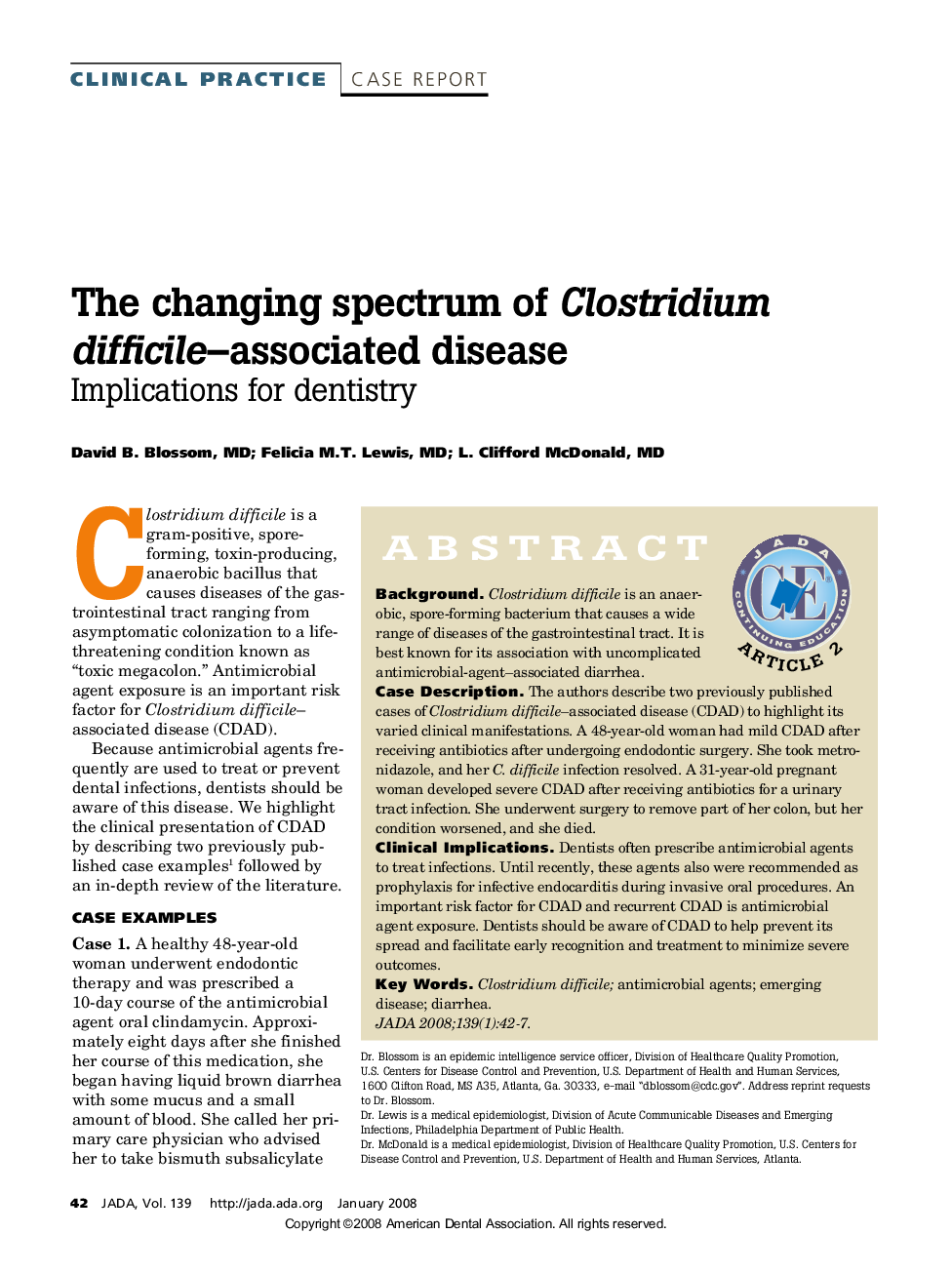| Article ID | Journal | Published Year | Pages | File Type |
|---|---|---|---|---|
| 3140227 | The Journal of the American Dental Association | 2008 | 6 Pages |
ABSTRACT BackgroundClostridium difficile is an anaerobic, spore-forming bacterium that causes a wide range of diseases of the gastrointestinal tract. It is best known for its association with uncomplicated antimicrobial-agent–associated diarrhea.Case DescriptionThe authors describe two previously published cases of Clostridium difficile–associated disease (CDAD) to highlight its varied clinical manifestations. A 48-year-old woman had mild CDAD after receiving antibiotics after undergoing endodontic surgery. She took metronidazole, and her C. difficile infection resolved. A 31-year-old pregnant woman developed severe CDAD after receiving antibiotics for a urinary tract infection. She underwent surgery to remove part of her colon, but her condition worsened, and she died.Clinical ImplicationsDentists often prescribe antimicrobial agents to treat infections. Until recently, these agents also were recommended as prophylaxis for infective endocarditis during invasive oral procedures. An important risk factor for CDAD and recurrent CDAD is antimicrobial agent exposure. Dentists should be aware of CDAD to help prevent its spread and facilitate early recognition and treatment to minimize severe outcomes.
